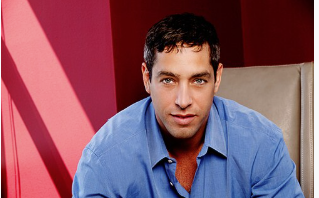The Art of Enterprise and Expression: A Dual Journey in Business and Film

Building Ambition from an Influential Heritage
Born in New York City, Nicholas Mears Loeb entered a world shaped by diplomacy, enterprise, and social responsibility. His father, John Langeloth Loeb Jr., was a distinguished ambassador to Denmark and a delegate to the United Nations, while his mother, Meta Martindell Harrsen, came from a background rooted in public service and faith. Although his parents divorced when he was just one year old, Loeb’s early years were marked by a unique mix of privilege and challenge. Raised by his father on Manhattan’s Upper East Side, he attended the Collegiate School and later the Loomis Chaffee School, two institutions known for cultivating independent thinkers.
His education extended beyond the classroom. Loeb spent three formative years in Denmark during his father’s diplomatic posting, an experience that broadened his worldview. After returning to the United States, he pursued higher education at Tulane University in New Orleans, earning a Bachelor of Arts in Management and Finance in 1998. Yet, behind his polished upbringing lay personal tragedy, his mother’s death in 1996, which would shape his sense of purpose and resilience.
An Entrepreneurial Mind with a Vision for Sustainability
After graduating, Loeb’s career took him into the fast-paced world of finance and investment. He began working with Lehman Brothers, where he learned the complexities of the financial markets and developed an interest in projects that connected business with social and environmental responsibility. That drive led to the founding of Carbon Solutions America, a firm dedicated to providing climate change advisory services to both corporate and government clients.
Loeb’s company made a lasting mark by promoting carbon neutrality at a time when the concept was still gaining recognition in the United States. Among its achievements was helping produce what was described as the nation’s first carbon-neutral wine. This combination of financial insight and environmental awareness reflected Loeb’s belief that profitability and sustainability could coexist, a principle that would guide his later ventures.
Innovation in Flavor, A Business Built on Crunch
In 2006, Loeb launched Loeb’s Foods, an entrepreneurial venture that combined his passion for innovation with an understanding of consumer trends. Building on that momentum, he founded the Crunchy Condiment Company in 2011, introducing Onion Crunch, a crispy fried onion topping that quickly found its way onto shelves across the United States. The product’s success was a testament to Loeb’s eye for market opportunities and his hands-on approach to branding and distribution. Within a short period, Onion Crunch was sold in more than 17,000 locations nationwide.
What made this venture distinctive was Loeb’s ability to transform a simple culinary idea into a large-scale business operation. It was not merely about selling a condiment; it was about shaping a recognizable and enjoyable product experience. This skill for translating creative concepts into tangible business success would later echo in his film projects, where vision and execution were equally essential.
A Political Journey Driven by Principle
Beyond business, Loeb also entered the political arena, viewing public service as an extension of his entrepreneurial spirit. In 2005, he ran for a seat on the Delray Beach City Commission in Florida, an early step in what he hoped would be a larger political career. Although unsuccessful in that race, he gained experience that would serve him well in later campaigns.
He later served as finance co-chairman for Rudy Giuliani’s 2008 presidential campaign, demonstrating his commitment to civic engagement and national policy. In 2009, he launched a state Senate campaign in Florida, backed by Giuliani, but ultimately withdrew due to personal challenges. Despite stepping away from the race, Loeb reimbursed his donors out of his own pocket, reflecting a rare sense of integrity in political fundraising.
In 2011, he chose not to pursue a United States Senate run, citing health concerns after a serious car accident the previous year. Identifying himself as a Teddy Roosevelt Republican, Loeb consistently emphasized moderation, conservation, and responsible reform, a philosophy that mirrored the balance of ambition and conscience evident throughout his life.
From the Boardroom to the Big Screen
While business formed one half of Loeb’s identity, acting and film production provided the other. His early exposure to cinema came through his work with acclaimed director Mike Nichols on Primary Colors, where he gained firsthand insight into the creative process. Soon after, he produced and acted in The Smokers (2000), a film featuring Dominique Swain, Thora Birch, and Busy Philipps.
This initial success was followed by work as a producer for the PBS documentary series The Living Century, a project he co-produced with Barbra Streisand. Through these experiences, Loeb developed a respect for storytelling that went beyond entertainment; it was about perspective and purpose. Over the years, he balanced acting roles in both independent and mainstream films, including All Mistakes Buried (2015), Extraction (2015), Precious Cargo (2016), Day of the Dead Bloodline (2017), Den of Thieves (2018), and The Brawler (2019).
His most ambitious project to date, Roe v. Wade (2020), reflected both his creative passion and his willingness to tackle complex subjects. Serving as co-director, co-producer, and co-writer, Loeb portrayed Dr. Bernard Nathanson, the real-life figure who played a key role in the abortion debate. The film attracted international attention for its controversial subject matter and for Loeb’s commitment to exploring moral and social questions through cinema.
Faith, Family, and Personal Legacy
Loeb’s personal life has often attracted public attention. He was married to Swedish model Anna Pettersson before their eventual divorce, and later became engaged to Colombian American actress Sofia Vergara in 2012 after two years of dating. The relationship ended in 2014, but the couple’s legal dispute over frozen embryos became a widely discussed ethical and legal case.
In 2015, Loeb published an opinion piece in The New York Times advocating for the right to allow the embryos to be brought to term, a position that sparked national debate. Although the courts ultimately dismissed the case, Loeb’s persistence highlighted his personal convictions about life, faith, and moral responsibility.
In 2019, Loeb revived historic Spanish nobility titles, including that of the Marquis of Cañada Hermosa and the Count of San Pascual Bailón, later bequeathing the title of Marquis of Canada Hermosa to his son, Jackson Ciro Loeb and title of Countess of San Pascual Bailón to his eldest daughter Penelope Lehman Loeb. Their inheritance of these titles was a symbolic gesture of legacy, an affirmation that his family’s history, like his career, was about continuity and principle.
A Life Interwoven with Purpose
From global diplomacy to environmental entrepreneurship, from political ambition to creative expression, Nicholas Mears Loeb has built a career defined by both diversity and depth. His work demonstrates that business and art are not opposing forces but complementary expressions of innovation and purpose. Whether founding companies, supporting civic causes, or directing films that challenge moral boundaries, Loeb continues to embody a distinctly American spirit, the belief that success comes not just from achievement but from the courage to create, question, and persevere.

